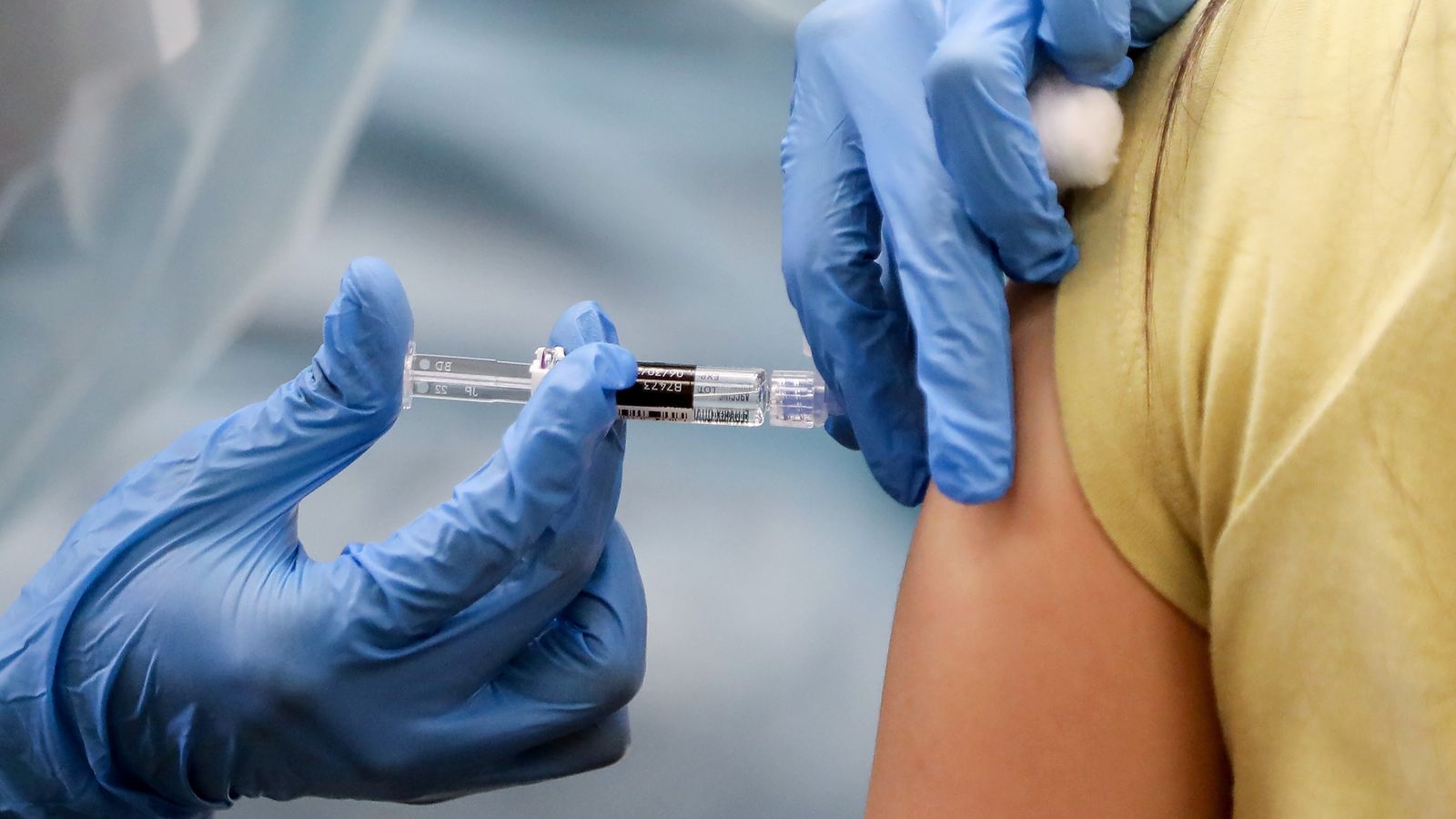The chair of the UK Vaccine Taskforce has said the first generation of COVID-19 vaccines “is likely to be imperfect” and that they “might not work for everyone”.
Writing in The lancet, Kate Bingham said no vaccine in the history of medicine “has been as eagerly anticipated” and that “vaccination is widely regarded as the only true exit strategy from the pandemic that is currently spreading globally”.
But she cautioned against over-optimism and that any vaccine might not work for everyone, or for very long.
“We do not know that we will ever have a vaccine at all,” she wrote. “It is important to guard against complacency and over-optimism.
“The first generation of vaccines is likely to be imperfect, and we should be prepared that they might not prevent infection but rather reduce symptoms, and, even then, might not work for everyone or for long.”
The Vaccine Taskforce was created by Sir Patrick Vallance, the UK government’s chief scientific advisor. It was set up under the Department for Business, Energy and Industrial Strategy in May 2020, and Ms Bingham reports directly to the prime minister.
In her Lancet article she said that the “strategy has been to build a diverse portfolio across different formats to give the UK the greatest chance of providing a safe and effective vaccine, recognising that many, and possibly all, of these vaccines could fail”.
Ms Bingham’s article came as a review of coronavirus vaccine research called for a standardised approach to assessing the effectiveness of all potential COVID-19 inoculations.
Publishing their conclusions in The Lancet Infectious Diseases journal, researchers from the University of Oxford said a meaningful comparison of different candidates is required to ensure only the most effective vaccines are deployed.
Dr Susanne Hodgson, of the University of Oxford, who is the lead author of the review, said: “It is unlikely that we will see a single vaccine winner in the race against Covid-19.
“Different technologies will bring distinct advantages that are relevant in different situations, and additionally, there will probably be challenges with manufacturing and supplying a single vaccine at the scale required, at least initially.
“Taking a standardised approach to measuring the success of vaccines in clinical trials will be important for making meaningful comparisons, so that the most effective candidates can be taken forward for wider use.”
There are more than 200 vaccine candidates in development around the world, with 44 in clinical trials.
Of the 44, nine are in the phase three stage of clinical evaluation and are being given to thousands of people to confirm safety and effectiveness.
